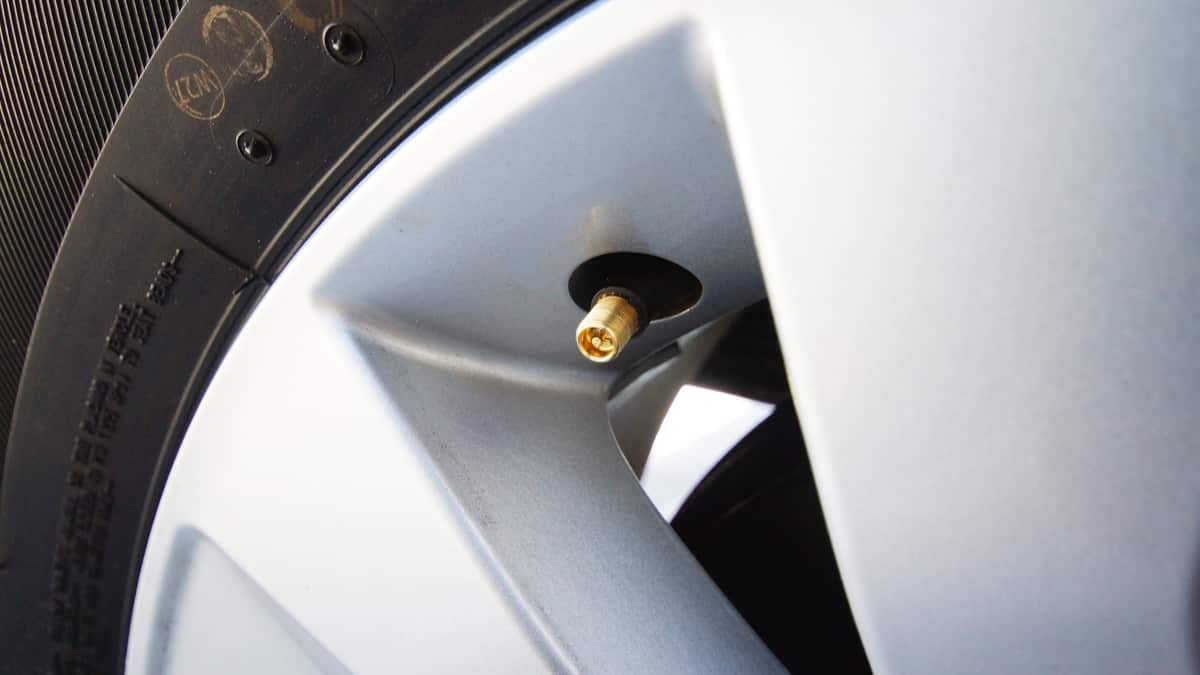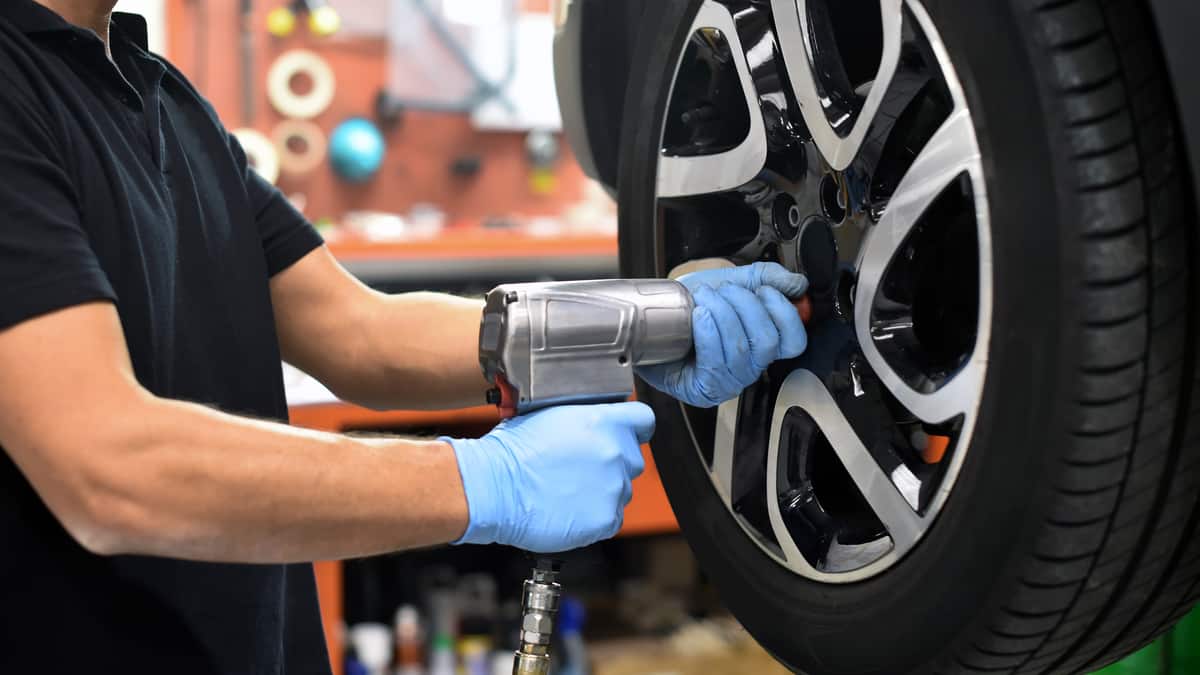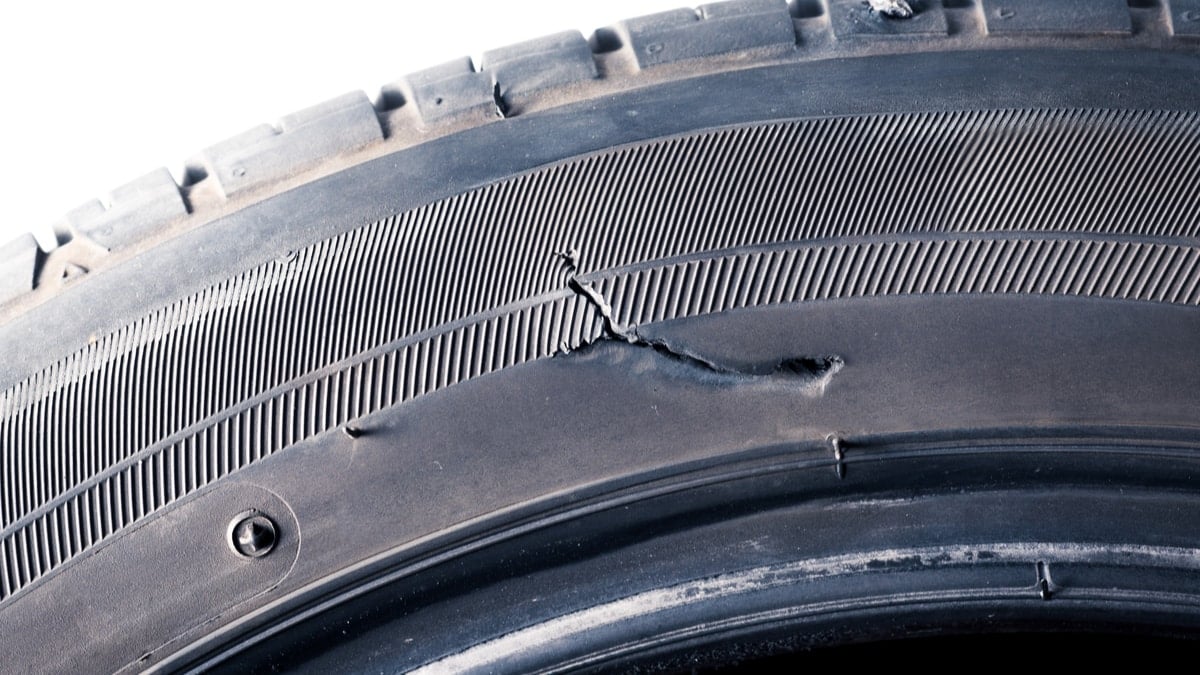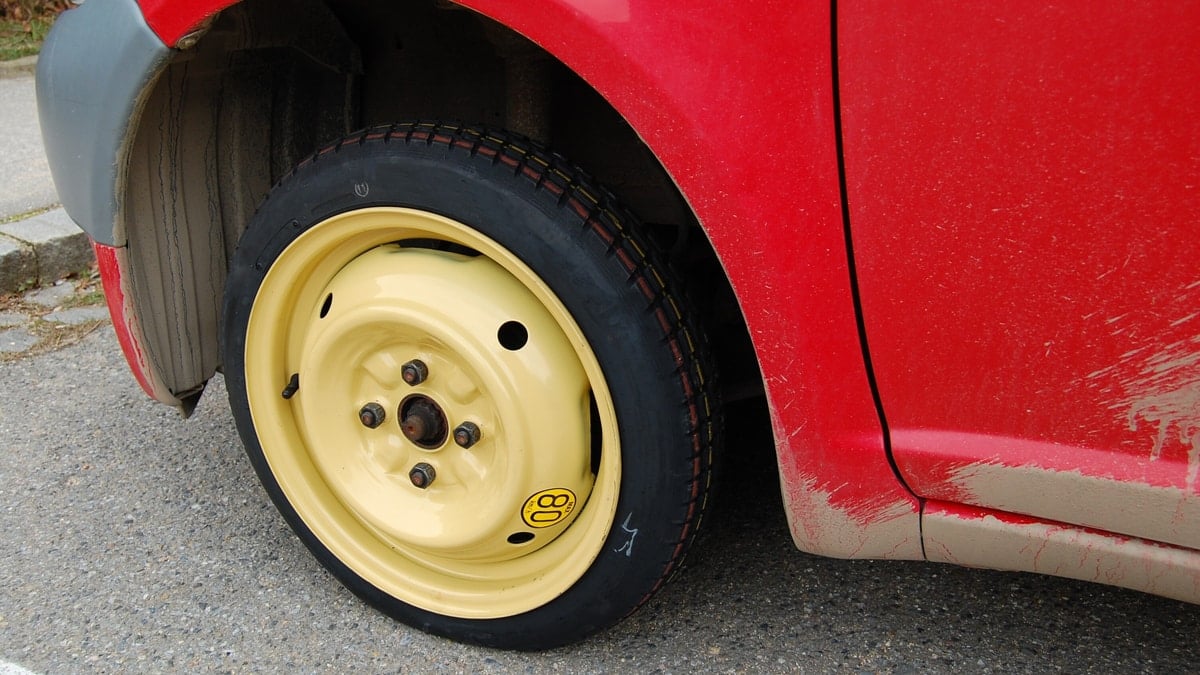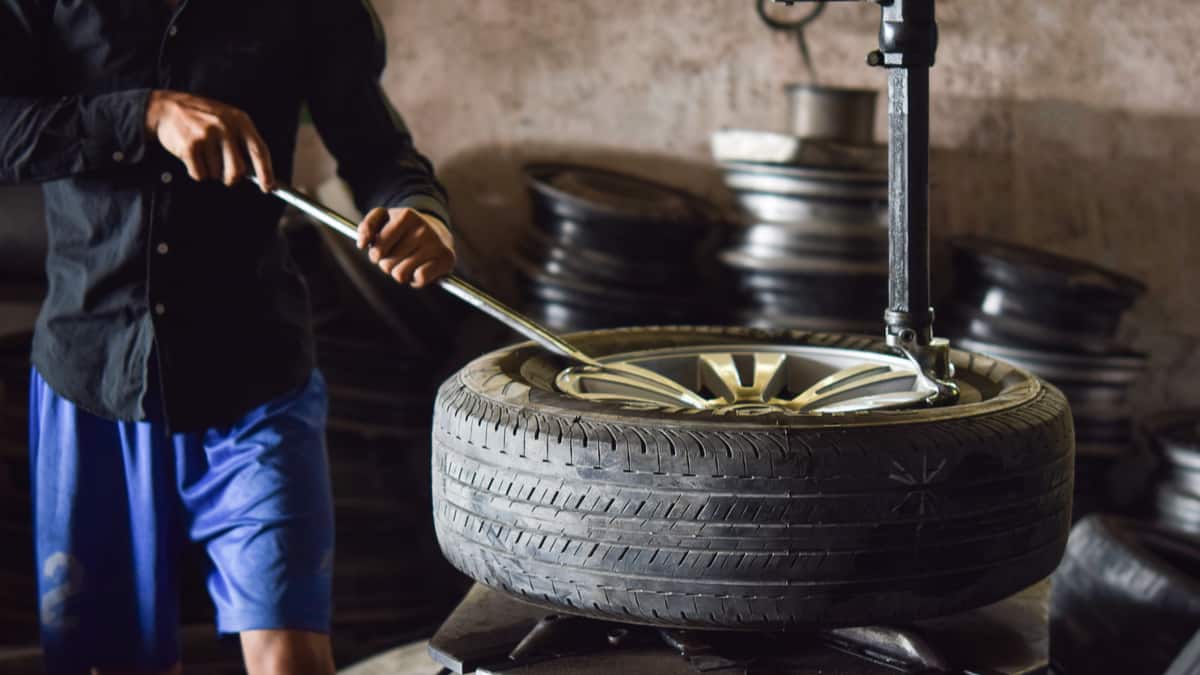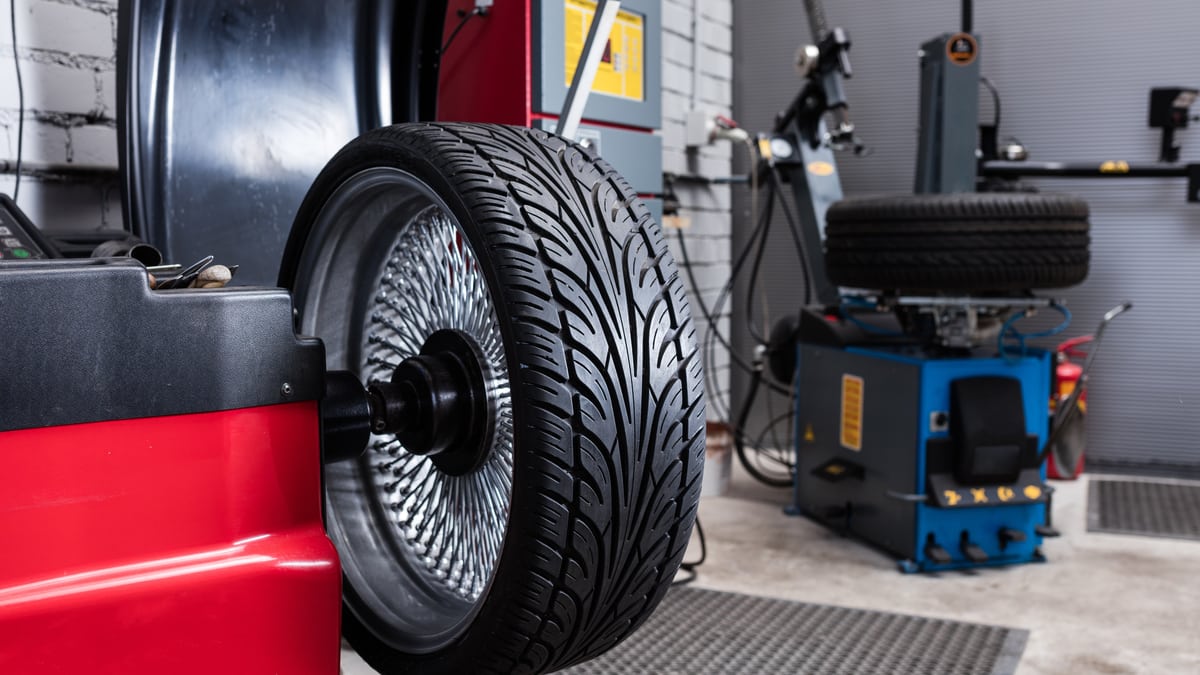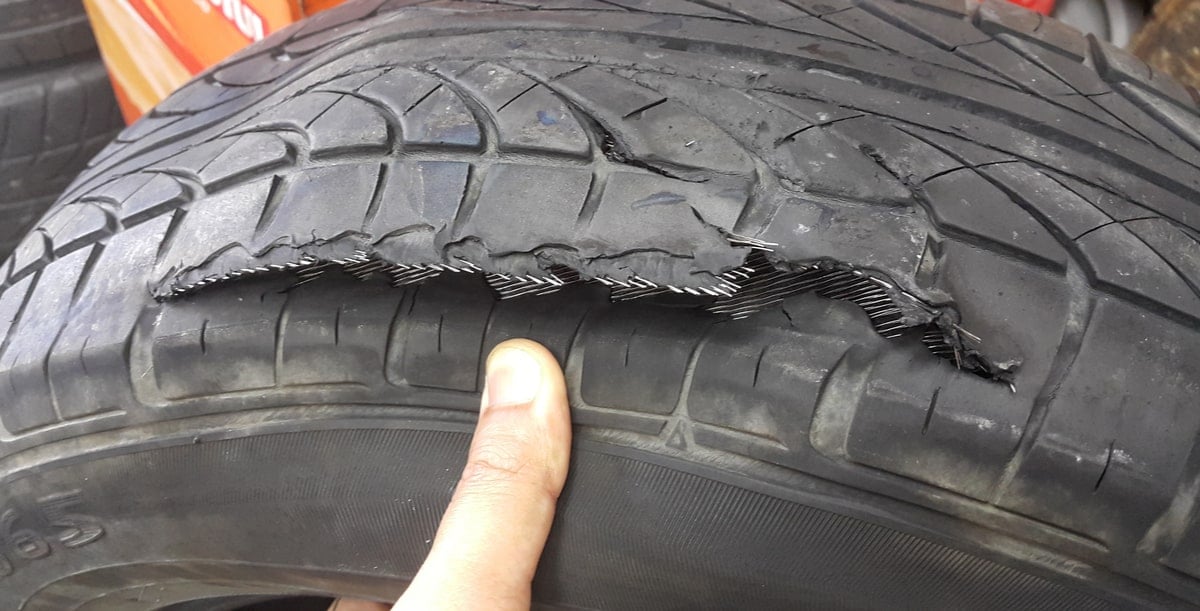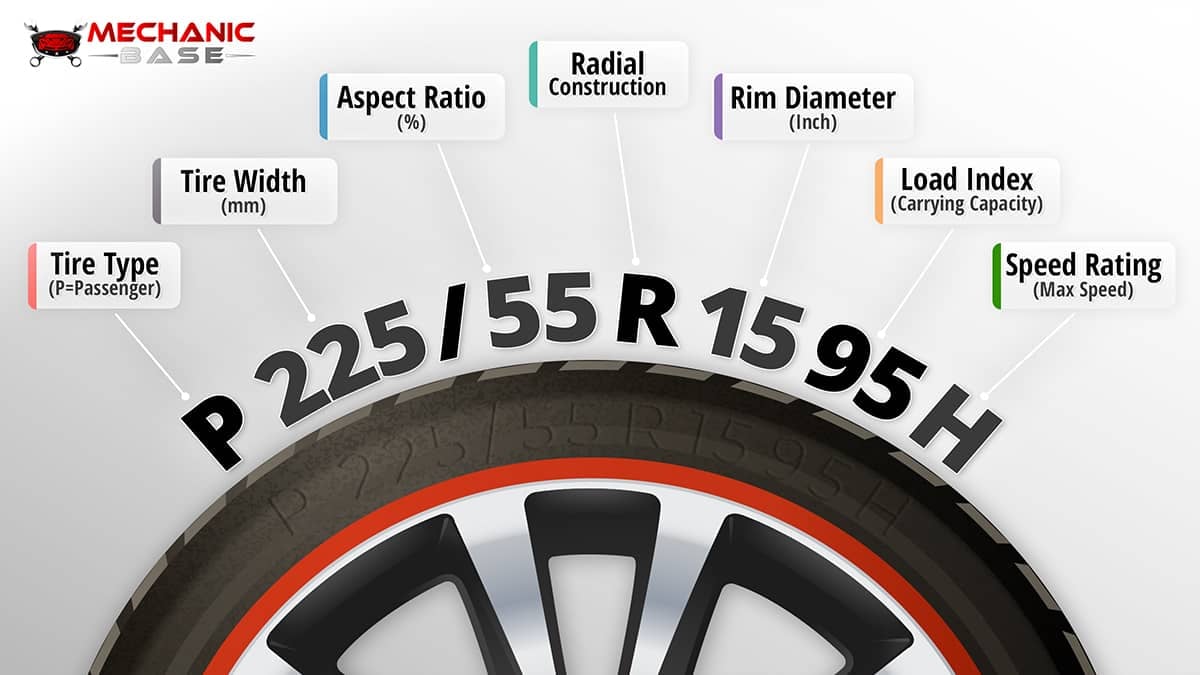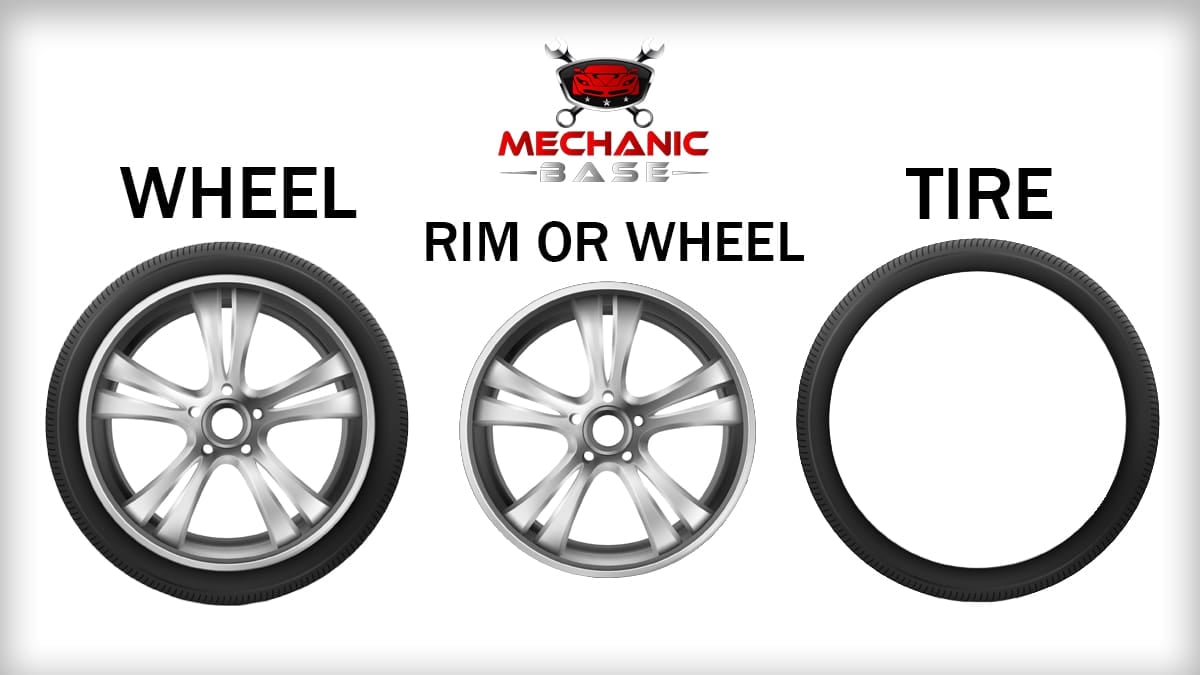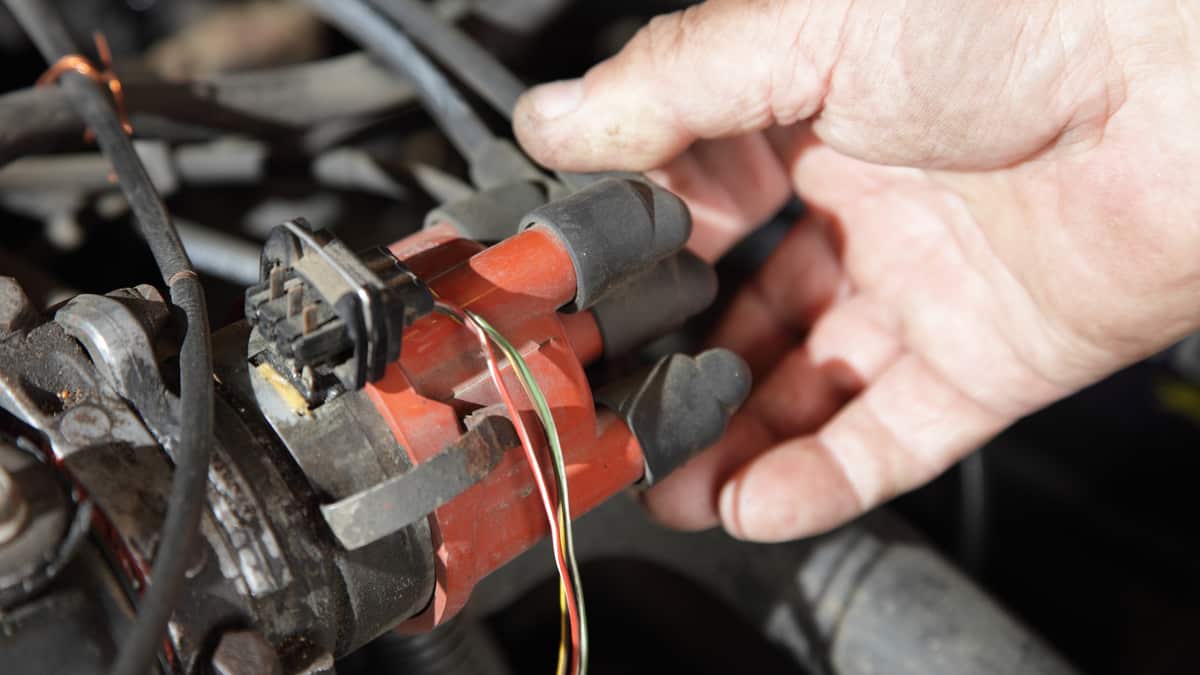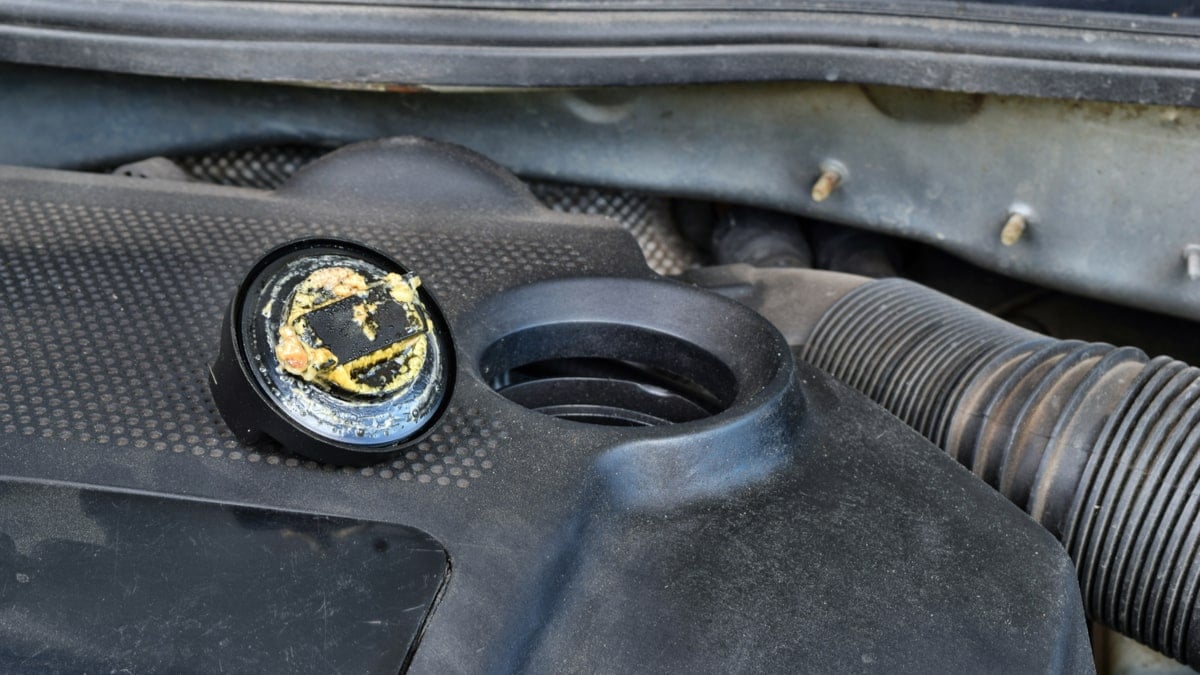There’s only one part of your vehicle that makes contact with the road surface – the tires. If the tires aren’t properly inflated, you are in danger. That’s why you take the time to ensure proper inflation and good tire health. So, what happens if the air tire valve cap gets lost? Do tires lose air if the air tire valve cap is missing?
When the tire cap goes missing, air shouldn’t be lost. Air won’t be able to seep out of the tire just because it’s missing a cap. There are purposes to having the valve cap in place, but keeping the air inside the tire isn’t the main reason.
In this guide, I look at the function of the tire valve cap. I also examine how tight it should be and showcase the reasons your tire might lose air. At the end of the article, you can learn about the different types of valve stem caps and the cost of replacement.
What is the Air Tire Valve Cap?
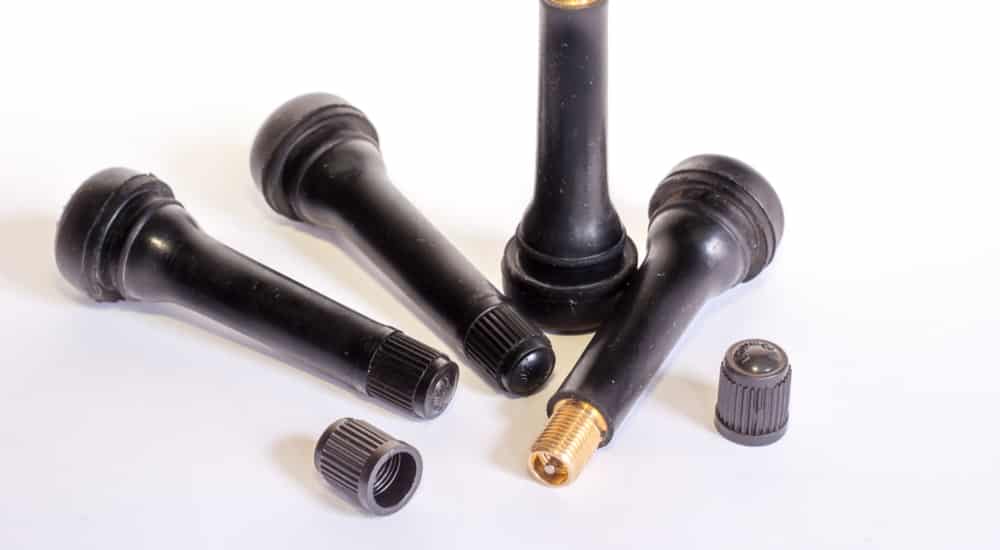
The valve cap isn’t used to keep the air from leaking out of the tire. Whether the cap is on the stem or not should have no effect on whether the air remains intact. However, it does have an important function that shouldn’t be overlooked.
As you drive the vehicle through snow, water, mud and dirt, the valve stem cap keeps the valve from becoming contaminated with debris and goo. As an example, if too much mud were to get into the valve, it could become damaged. You may also have trouble inflating the tires with mud caked up on the valve.
Do Tire Valve Caps Fall Off?
There are times when the tire valve cap could fall off. If you haven’t tightened it correctly, it could fall off on its own. That’s why it’s important to secure the cap.
There’s also the chance that an impact could make it pop off. If you brush the car against the curb, the scraping effect could also take off the stem cap. It can also create damage to the stem itself, which might lead to leaking air.
However, the most common reason that the tire valve caps come off is that they are misplaced. When you take the cap off to fill the tire, it’s easy to misplace it. When you fill the tires, put the valve caps in a secure location for reinstallation.
Are Tire Valve Caps Universal?

For the majority of models, the valve stem caps are universal. You can walk into any auto parts store and get replacement valve stem caps that should fit your tires. In fact, it’s hard to find them sold individually.
However, if you drive specialized farm equipment or heavy-duty trucks, the valve stem will likely be different. You might have to purchase your valve caps from a tire shop.
How Much Should You Tighten Valve Caps?
When you tighten the valve caps, you want to turn them until they are finger-tight. Don’t use tools on the valve caps because they should never be that tight. If you overtighten them, you could cause damage.
When you reapply the valve cap, you will place it on the stem and turn it counter-clockwise half a turn. This ensures that the cap is properly seated on the threads. Once it is secure, you can tighten it up until it doesn’t go any further, but don’t overtighten it.
Reasons Tires Lose Air
1. Broken Valve Stem
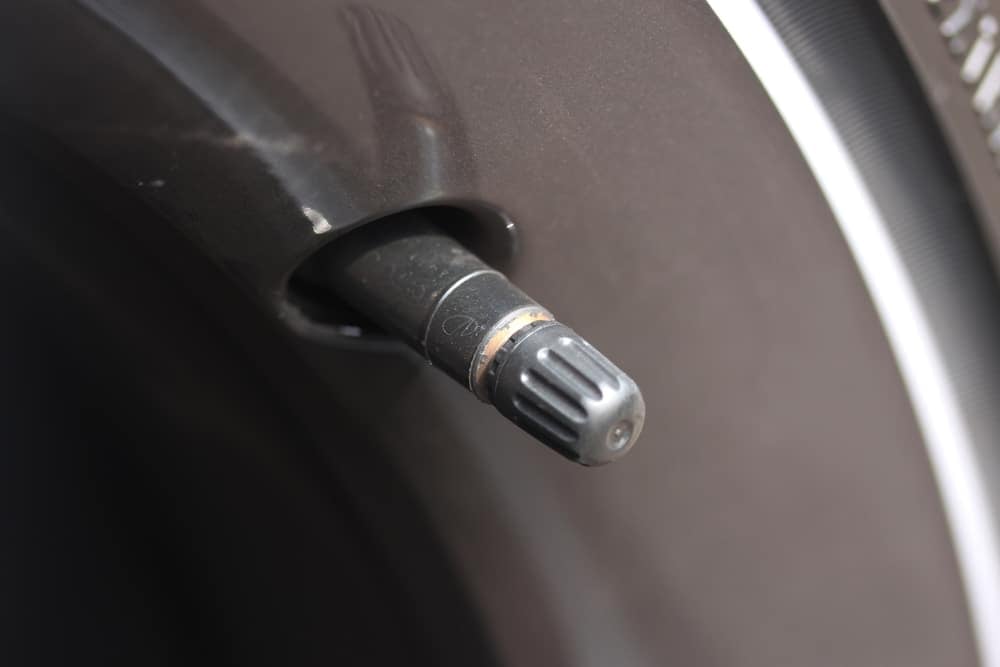
While the valve cap isn’t going to cause leaking air, a defective valve will. However, the level of air that leaks out will depend solely on how bad the damage is.
It’s possible to have a minor leak that is barely noticeable. On the other hand, it could also leak bad enough that you hear the air coming out.
2. Tire Puncture
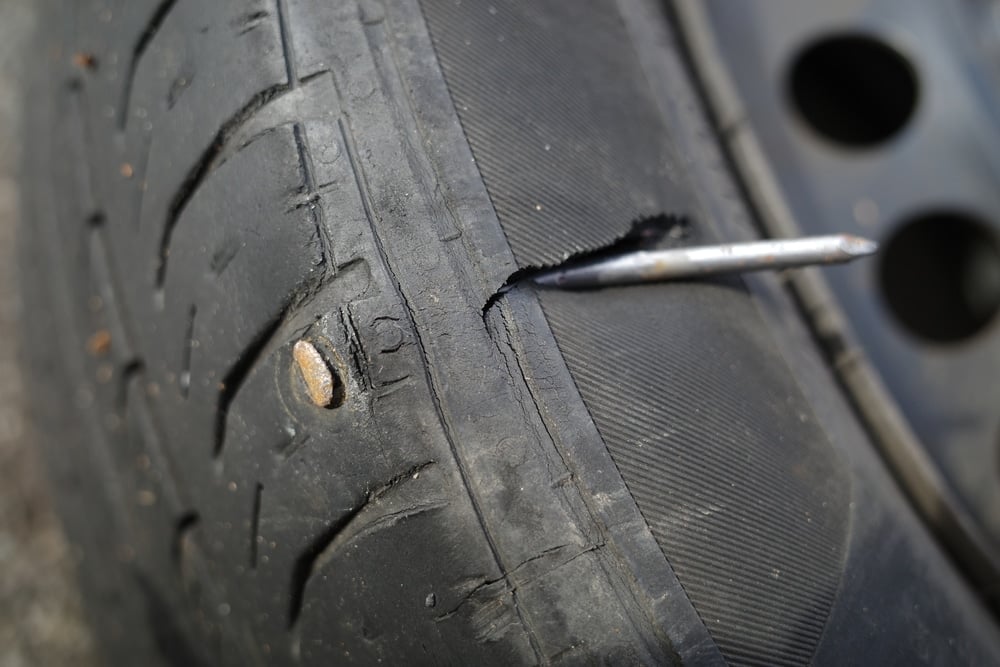
If you run over something on the road, it can puncture the tire and let the air out. The most common items are screws, nails and other debris left on the road.
Depending on how the puncture occurs, it might automatically plug the hole, so you don’t notice any air loss at first. Once the air starts leaking, you might be able to get a patch or plug put on. However, there are also instances where the puncture cannot be repaired and a new tire will be needed.
RELATED: Are Tire Plugs or Tire Patches Better?
3. Damaged Wheel
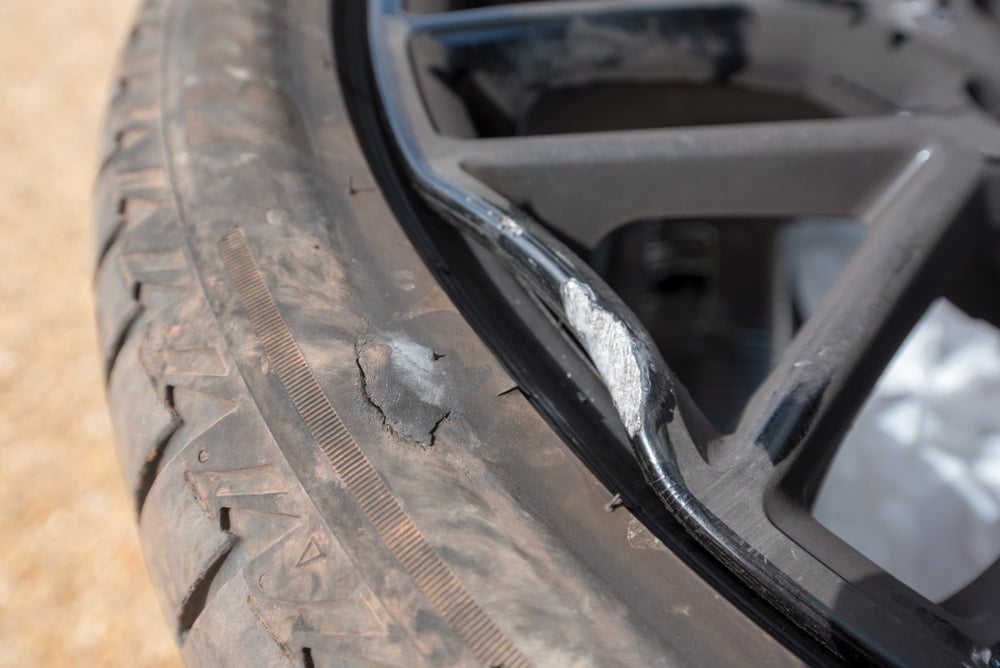
The rim can be damaged if you hit something on the road. Hitting a curb, running into a pothole or colliding with road hazards can create damage to the wheel itself. If the tire can’t seat correctly on the rim, air could leak out.
In most cases, damaged rims are unrepairable. You would want to replace the rim to ensure proper on-road safety.
RELATED: How Much Do Rims Cost?
4. Broken Bead
The tire bead is where the seal of the rubber and the wheel meet together. If the bead isn’t perfectly sealed, air can leak out.
This occurs if there is damage to the bead. It can also happen if debris gets between the wheel and tire, allowing air to seep out.
5. Old Tire
Tires will age, especially if they aren’t used. When a tire sits, especially in the sunlight, it can become the victim of dry rot.
Even if it is used, it will start to wear down over time. As the tire becomes brittle, the tread separates, leading to leaking air.
RELATED: Tire Dry Rot: Warning Signs, Replacement, Prevention & Safety
6. Temperature Changes
It’s always recommended to check tire pressures when the temperatures change. That’s because the temperature outside has a profound effect on how much air is in the tire. While the fluctuation won’t cause air to seep out, it does change the density of the air pressure.
As the temperatures drop, tires start to lose air pressure. The opposite is true, with temperatures rising and pressures rising in conjunction. If the temperature quickly shifts cold, it could look like the tire is leaking air.
Over time, tires are going to lose some air naturally. The air molecules will change pressure and composition, leading to a drop in psi. That’s why you want to check the tires monthly, at a minimum. With regular inspections, you can catch any problems before it affects your on-road safety.
Cost to Replace Missing Tire Valve Cap
You can buy a big pack of tire valve caps at the local auto parts store for $10 or less. If you need something for a heavy-duty truck or you are looking for something fancy, you might pay more than the average. You don’t need anyone’s help to install valve stem caps. It only takes a few minutes
If you need to replace the valve stem in a tire, this is also a fairly easy process. If you are capable of doing it yourself, it might cost you about $10. Otherwise, expect to spend $25 to $50 at your local tire shop.
Different Types of Valve Stem Caps
You can choose from several different types of valve stem caps when you visit the auto parts store or tire shop. Most people opt for cheap plastic caps. These work great in normal driving conditions and won’t cause any unusual issues. You can buy a large pack of these caps to keep on hand in case you lose one.
There are also metal dome caps available. These are better in higher temperatures, such as when you drag race or operate a high-performance car. There are also knurled metal caps that make it easier to tighten or loosen. You can also find some with a hex head design. With the metal caps, you will see a special O-ring or another seal that keeps the valve on securely.
However, we do not recommend using aluminum or metal tire valve caps instead of plastics, even if they look better than the standard caps. The reason for this is that the aluminum and metal cap can start to corrode and rust, which can make them impossible to remove without damaging the air valve stem.
Categories: Tires
